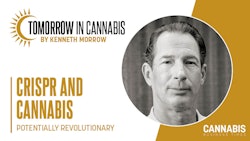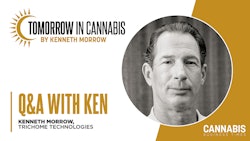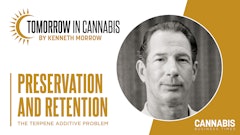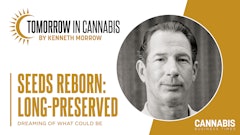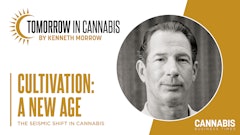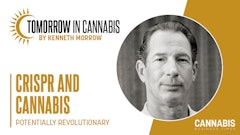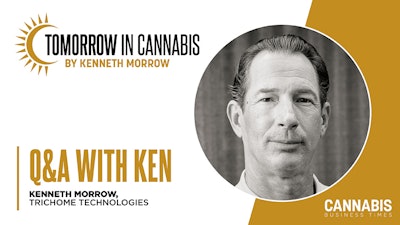
Editor’s note: This Q&A has been edited for length, style, and clarity.
Q. It seems like every month I read a new article about hop latent viroid (HLVd) infection. I have read that 90% of the plants in California are infected with the viroid, that it can be transmitted via clones and seeds, and that the only method to eliminate the viroid from a plant is by taking meristem tissue cultures from the infected source and hoping that the viroid has not infected the newest tissue/shoots.
I've inquired from a reputable local tissue culture company for a price and timeline for their services. Their meristem tissue culture services start at $10,000 per cultivar, and depending on factors such as how easy the cultivar is to tissue culture, their timeline approximation was between 12 and 24 months with no guaranteed time.
Given that cost and timeline, how do I avoid getting reinfected after I go through that process and receive back my viroid-free genetics?
A. The short answer is there is no realistic way to stay 100% safe from virus/viroid infection. That’s because viruses and viroids can be transmitted in many different ways. HLVd, for example, can be spread by new clones entering your cultivation area; a human or tools that came in contact with the infection that are then brought into the facility; or by infected tobacco plant products (even from the hand of a tobacco smoker).
That said, there are strategies you can adopt to minimize virus and/or viroid infection risk. While these may not apply to all pathogens–HLVd is notoriously difficult to eliminate, as you mention in your question–the practices can apply to many infections and diseases.
For starters, if you intend to introduce new genetics into your operation, you must quarantine all clones and mature plants until they are deemed virus/viroid-free by lab analysis. Additionally, all staff members should wash their hands and feet prior to entering a facility, and grow environments and irrigation systems should be completely disinfected between crop cycles.
On the mechanical systems side, your ventilation intake system should incorporate ultraviolet (UV) sterilization capabilities or another form of intake air sterilization capable of destroying viruses, viroids, and other pathogens. All water sources also should be sterilized, whether through pasteurization (heat application), UV, ozone, or oxygen. Water can spread some viruses and viroids, especially when reusing and recycling water, such as HVAC condensate or irrigation leachate. (Note: Researchers from Medicinal Genomics found that “exposing HLVd-infected tissue to high heat (up to 70C), UV-C, and disinfecting chemicals such as Virkon, Zerotol, Bleach, and Hypochlorous acid will not destroy the viroid.”)
Given the risk of infection to mother plants when taking cuttings for cloning, you need to be vigilant and sterilize all scissors, shears, and any and all maintenance tools that are utilized to touch plants with diluted bleach. Another part of that vigilance is always searching for any symptoms or signs of infection in combination with regular lab analysis to confirm no presence of infection.
Most industries that utilize tissue culture to propagate always keep clean tissue culture plants in storage and ready to replicate in case an outbreak occurs. When you receive your clean genetics back from the lab, your first priority is to replicate the clean stock and place it into storage so that you can always have a clean plant source available. This can save you from having to pay the original tissue culture lab again and wait as they repeat the process.
Kenneth Morrow is an author, consultant and owner of Trichome Technologies. Facebook: TrichomeTechnologies Instagram: Trichome Technologies Email: [email protected]
About this column: Cannabis industry expert Kenneth Morrow regularly fields questions in response to his “Tomorrow in Cannabis” column in emails and direct messages. Now, Cannabis Business Times is giving people an opportunity to ask questions and get them answered in an open forum. What questions do you have for Ken? Please send all questions to Noelle Skodzinski, [email protected], and your inquiry may be the foundation of the next article.












